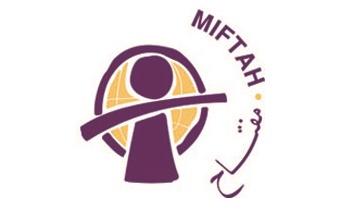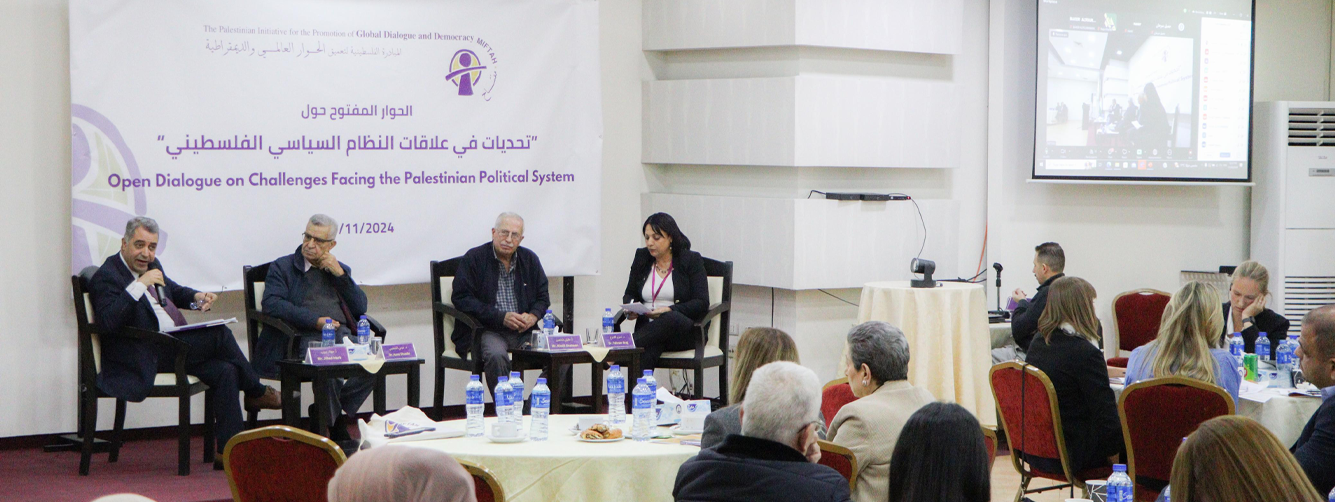
Ramallah – 17/10/2020 – MIFTAH held a zoom session on October 15 in which it presented the results of a mapping study of institutions working with women and girls subjected to gender-based violence in Tulkarm, Jenin, Tubas and Qalqilya districts. The meeting addressed the study results and the necessary interventions from official, civil and international parties for providing psychological, social, health, legal and economic services to victims of gender-based violence. It also measured the nature and availability of services and their accessibility to women in order to identify the gaps and obstacles hindering women’s and girls’ access to protection services and other supporting services, in addition to scrutinizing the funding gaps in these institutions.
The mapping results showed that services provided by institutions catering to battered women and girls are directly related to the needs of women and girls in each of these districts, but do not cover all of their complementary needs such as health, social and economic needs. Discrepancies between the institutions were also apparent in their focal points regarding integrative intervention to ensure women’s access to services and protection. What’s more, the study pointed to the weak abilities of government institutions due to the political situation and military occupation, to the meagre financial resources for following up on GBV cases and in taking the necessary measures to protect women, especially in Area C.
The mapping also indicated that women’s options regarding institutions for protection are made according to factors such as safety, trust and alternative venues in the absence of any guarantee for legal protection. This often results in women remaining silent about the violence and allowing customs (familial and tribal) to play a role in filling the gap resulted from the lack of institutions or the weak financial capabilities of others. This impacts the response to the scope of cases of GBV against women and girls and the repercussions of the various types of violence against women and their families. Moreover, the economic factor, according to the services provided by these institutions, has the most impact on women’s ability to combat violence against them.
Interventions
All of interventions and discussions in the session confirmed the importance of awareness in the targeted districts that these services are rights; they also called for integrating men in the awareness process through trainings and interventions that take into consideration women’s conditions and their needs and which promote their access to these services. They called for starting a dialogue with the Ministry of Social Development to pressure the Ministry of Finance to increase the budget for social development, especially regarding the protection and integration program. This would contribute to increasing the interactive capabilities of the Ministry’s directorates in following up on battered women’s issues, with the cooperation and coordination with like-minded institutions in providing protection services for women and girls in a cycle of violence. They urged international institutions to also support such programs and for UN agencies to direct support to institutions that provide protection services in the four marginalized districts, which have received the lesser share of services, resources and support.
Some of the interventions pointed to a qualitative and quantitative shortage in services in areas in the northern West Bank in terms of women’s accessibility to them and the fact that women victims of violence do not have knowledge of these services. This is because all of the services are concentrated in cities and not in these remote and marginalized areas. Institutions must offer qualitative services to women in grassroots service-provider institutions, to give them information about the referral system. This calls for integrated action and unified efforts between institutions through a unified intervention strategy in all the districts in order to close the gap in this regard.
The participants also called for a periodic update of studies on services and for awareness to be the focal point of the next stage, especially in remove and marginalized areas where services are not available.
Recommendations
The study concluded that the state of emergency due to the Covid-19 pandemic exposed the weakness of national systems, especially in combatting violence and also the gap between the capacities of institutions and the scope of needs for women and girls subjected to GBV.
The mapping produced specific recommendations for all sectors working in the fields of health, social, economic and legal services in government, non-governmental and international institutions operating in these districts, including: continued efforts, joint action between institutions to reform the legal system for women’s protection against violence such as ratification of the Family Protection Law; enacting the national referral system to refer women to health, social and legal services and also to review the extent of its efficacy in the four districts; increasing the budgets and expenditures of protection and economic programs that target battered women in the four districts; ensuring fair distribution of financial resources; raising the potentials and quality of services provided to women in these districts; providing continuous training to those working in these districts along with an impact-assessment of this training on the services provided; evaluation of the extent to which battered women benefit from the services, programs, interventions and strategies, including those at the international, government and NGO level; and the need for cross-sectional work between institutions to respond to women’s needs.
This session is in the scope of MIFTAH’s interest in impacting public policies and legislation within its strategic approaches towards achieving protection, justice and equity in Palestinian society and promoting the principles of good governance through its project “Working Together as Agents for Change: Towards the Protection and Promotion of Women’s Human Rights.” MIFTAH implements this project in partnership with the Women’s Center for Legal Aid and Counseling (WCLAC) and with funding from the EU, aimed at shedding light on the status of women, especially in marginalized districts subjected to ongoing Israeli occupation violations.








